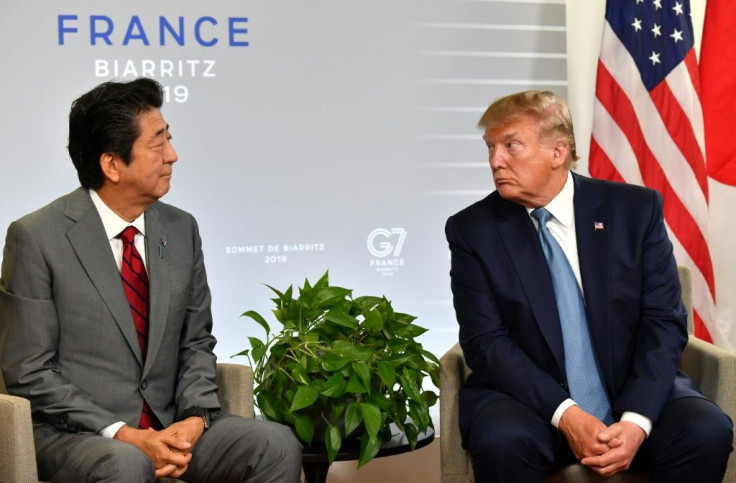US-Japan Trade Deal In Limbo As Tokyo Resists Car Tariffs

The trade deal expected to be signed between the United States and Japan this week, reportedly hit a speed breaker after Japan sought assurances that the Trump administration will not clamp tariffs on its exports of cars and auto parts.
Japan news reports had said President Donald Trump and Japanese Prime Minister Shinzo Abe were planning to sign the trade deal this week coinciding with the United Nations General Assembly in New York.
The reports by Reuters and New York Times quoted a slew of unnamed sources that confided “sticking points” are holding up the final deal.
This is despite many sectors in the trade deal having gained good traction including agriculture, chemicals, and digital trade.
According to the Japan Times, although the specifics are not yet known, Japan agreed on a key U.S. demand to reduce tariffs on U.S. beef and pork imports. It will be slashed from 38.5 percent to 9 percent eventually.
Japan insists on a sunset clause
Some media reports said Japan pushed for a “sunset clause” in the trade deal that would automatically cancel trade benefits in case the United States slaps tariffs on the import of Japanese vehicles citing national security clauses.
Auto imports from Japan are the main source of $67.6 billion U.S. trade deficit with Japan.
According to Trump news, the Trump administration determined this year that imports of automobiles are posing a threat to America’s national security as it weakens its industrial base that offers supplies to the United States military.
Trump had threatened tariffs up to 25 percent on Japanese and European car and component imports. But the President has not acted so far as in Chinese imports saying trade negotiations are in progress.
Japan’s thriving auto exports
Japan is home to vibrant auto industry. A recent report by IHS Markit said Japan’s total automotive production grew 5.2 percent in 2017.
The top 10 Japan auto brands are Toyota, Honda, Nissan, Suzuki, Lexus, Daihatsu, Mazda, Subaru, Mitsubishi, and Isuzu.
Japan cars have sizable shares in most export markets. The country also exports used cars via platforms like Beforward. SBT Japan sells used cars in the local markets.
Meanwhile, Japanese Foreign Minister Toshimitsu Motegi told reporters in New York after meeting the U.S. Trade Representative Robert Lighthizer that “significant work was underway to finalize the deal.”
However, Motegi is not expecting any delay in signing the deal by the end of September.
© Copyright IBTimes 2024. All rights reserved.





















